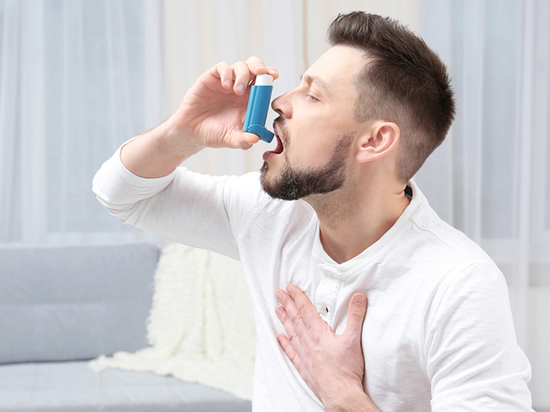
Although bronchial asthma since the middle of the last century it has been considered classic example psychosomatic diseases, most patients to this day have no idea about this, relying only on drugs for years and decades.
From the point of view of psychology, bronchial asthma is a disease that occurs in people "unable to breathe deeply" to survive in this difficult world.
Most often, the psychosomatic cause leading to bronchial asthma occurs in childhood, when the child does not meet enough love or attention from parents. The other extreme is an overabundance of parental care. In this case, the child “cannot take a single breath on his own”, his parents “make” him all the time for him.
Both the lack of care and its excess are situations in which the child unconsciously seeks a way out of the situation, and the disease appears in order to change the “method of salvation”.
These children develop a tendency to suppress depression and aggression associated with unsatisfactory relationships with their parents. The suppression of aggression occurs because the parents forbade expressing their feelings (“stop screaming”, “don’t cry”), and also because the child was even more afraid to “push away” his parents, expressing anger - after all, he already missed them. Asthmatics often experience aggression in a very strong form, but usually they do not express it, but suppress it, not allowing themselves to "vent anger into the air." Thus, the psychophysiological disease dominant.
How is this related to allergies? The well-known German specialist in the field of psychosomatics, Walter Breutigam, cites the following clinical case.
“A observation is described of a 17-year-old schoolgirl who had asthmatic attacks at the age of 5 and developed an increased sensitivity to room dust and feathers in bedding. In the hospital, she suddenly developed a severe asthmatic attack while in a good condition after she put on her mother's altered dress. Upon careful questioning, it was found that the patient from an early age was in a relationship of rivalry with her mother. When she was 5 years old, her mother suddenly caught her playing during the afternoon rest, which was strictly observed in the house. At the same time, her mother laid her in bed next to her. It was hot, the mother was sweating, and the patient felt disgusted. Then she had her first seizure. A targeted skin test with solutions from substances and objects containing the sweat of different people gave negative results until they tested the axillary sweat of the mother.
In adulthood, childhood history is most often forgotten, but bronchial asthma remains. Its exacerbations most often occur when a person experiences loneliness, sadness, or he needs to show responsibility, courage and independence, but he is forced to suppress these emotions. Learn more about the psychosomatic mechanisms of the disease read here.
Therefore, in order to cure asthma, it is necessary to eliminate psycho-traumatic experiences - "roots" from the past, and teach a person new ways of expressing and managing emotions - not through the respiratory system. This is what the integrative programdeveloped in our center.
A good non-drug treatment for asthma is transcranial electrical brain stimulation (TES). It is widely used for the treatment of diseases of various origins due to its analgesic effect, and also has a positive effect on the processes of reparation and an increase in the psychophysiological status of a person. Studies show, efficiency, absence of side effects and reduced dependence on drugs allows the use of TES in the complex therapy of asthma.
Combining psychotherapy with ketamine infusions, transcranial electrical stimulation, rehabilitation of the brain "Neurohelp", body-oriented therapy and art therapy, a significant improvement in the health of patients can be achieved.
Causes of psychosomatic illnesses
